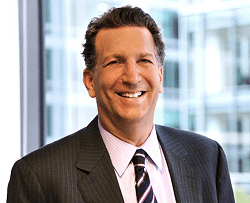Richard Levick Discusses Essential Information
 Richard S. Levick, Esq., Chairman & CEO, LEVICK
Richard S. Levick, Esq., Chairman & CEO, LEVICK
What compels us to risk dying for an idea, especially over irresistible love? What has happened to this collective spirit that for most of two centuries defined Americans and patriotic citizens the world over? Perhaps the collective sense of purpose will be one of the long-term benefits of the pandemic tragedy, overwhelming our current state of anger and selfish adoration. We can help each other.
While there are plenty of stories of vulture marketers leveraging this crisis (an issue we will cover soon), heroes are stepping up and need to be recognized and emulated.
Shortly after 9/11, the Washington Legal Foundation asked former Pennsylvania Governor and former US Attorney General Dick Thornburgh and me to speak on a panel to an audience of business executives. I misspoke on that day, when I said that 9/11 represented the most catastrophic casualties on American soil since the Battle of Antietam and Pearl Harbor. No one corrected me on that day or the years since and no wonder. Until I read Tim Gay’s masterful piece in American Heritage magazine this weekend.
I, like most contemporary Americans, failed to appreciate the carnage that took place on America’s three coasts at the start of World War II. In 1942 alone, German U-boats sank 233 ships in American waters and killed 5,000 seamen and passengers – more than double the number of fatalities at Pearl Harbor. It was the moment of greatest doubt about the course of the war for the indefatigable Winston Churchill. U-boats had infiltrated the mouth of the Mississippi, the mouths of the Connecticut and St. Lawrence Rivers, and – many suspect – Florida’s Banana River near what is now Cape Canaveral and Maine’s Kennebec River not far from Brunswick. Talk about close to home!
It was early in the war and the US military did not have the resources to protect the coasts so they called on civilian pilots, mechanics, sailors and others to volunteer. And volunteer they did, with over a quarter-million Americans of all races, religions, sexes, ages and social standing stepping in to protect America, under extreme hardship, including leaving or quitting their jobs, risking their lives, moving far away, usually for free, living in substandard housing and eating even lesser food. Some American companies stepped up too, among them the precursor to CITGO, to provide much-needed funding for these “citizen-volunteers.”
What is this spirit of selflessness, which compels some of us to risk all for others known and unknown? That compelled the “Greatest Generation” to volunteer by the millions to protect an idea? This idea, which we value more than life itself. Inspired by this call to grace, American Heritage addresses other crucial moments in our history in its special “America in Crisis” issue this spring.
Besides sheltering in place, how do we exercise leadership now? Many banks, law firms, insurance companies and others have been doing a great job sending out emails with empathetic and informative messages. With the federal government shrinking in the face of this generation’s World War, now more than ever, we need leadership from companies and institutions. More than three weeks in with many weeks to go, what information can we share that is more than “We are open for business but working from home” or “Here is what the latest stimulus package means for you?”
We have identified four remarkable stories and resources: what one private company is doing to handle the enormous inbound call volume confronting states; how one research facility has gutted its lab and reconfigured it into a massive private testing enterprise; and two non-profits that address our fiscal and mental health needs. One call to each for boundless resources and assistance. Before you send out your next company or client-wide email, please consider including some of these, especially the two nonprofits – NAMI and the NFCC – defined below. Lives depend on it.
University of California at Berkeley CRISPR Lab – Using their own labs, volunteer scientists and researchers and funding, they set up a testing lab to process thousands of tests.
The National Foundation for Credit Counseling NFCC has a toll free hotline 800-388-2227 and website that can assist you with all of your credit and financial concerns. One call to assist with all aspects of your financial situation, including the latest information on federal and state relief.
National Alliance on Mental Illness (NAMI) offers a toll free number and text for anyone feeling the stress and impact of these challenging times. 800-950-6264 or text NAMI to 741741.
AnswerNet, a company providing call centers, has been assisting states under extraordinary pressure to handle unprecedented call levels, assuage residents’ concerns, and set up Covid-19 testing.
They have they been hiring during this financial downturn, remotely training hundreds of new employees so they can work from home and assist the states and other companies under massive inbound calling. CEO Gary Pudles has also been working with “non-essential” companies who have been forced by economics to furlough their staffs, hiring most to all of them so that the states get their trained call center professionals and the distressed companies stay in business.
This is a new age of “citizen-volunteers.” Please help these heroes by getting this information out and let us know of others so we can spread the word. These are the times that define our lives.
Never lose hope. Help one another. Keep calm and carry on.
 About the Author: Richard Levick, Esq., @richardlevick, is Chairman and CEO of LEVICK. He is a frequent television, radio, online, and print commentator.
About the Author: Richard Levick, Esq., @richardlevick, is Chairman and CEO of LEVICK. He is a frequent television, radio, online, and print commentator.